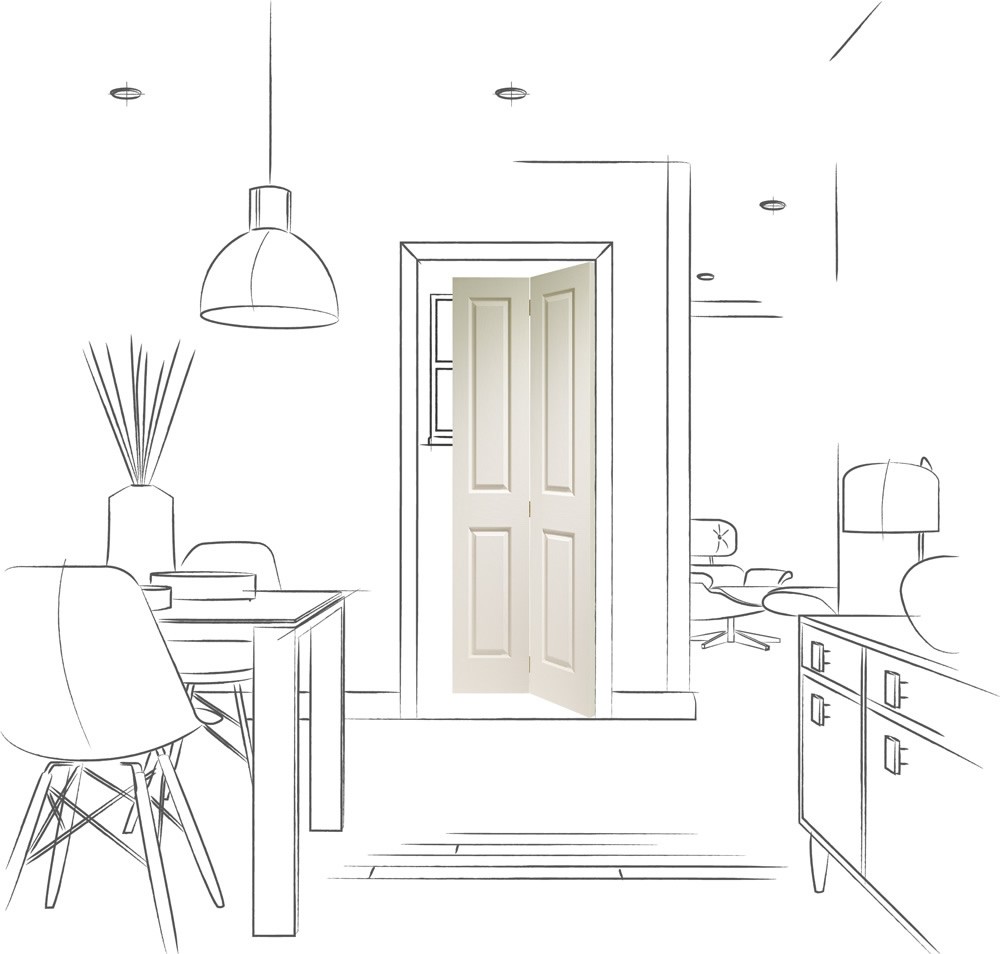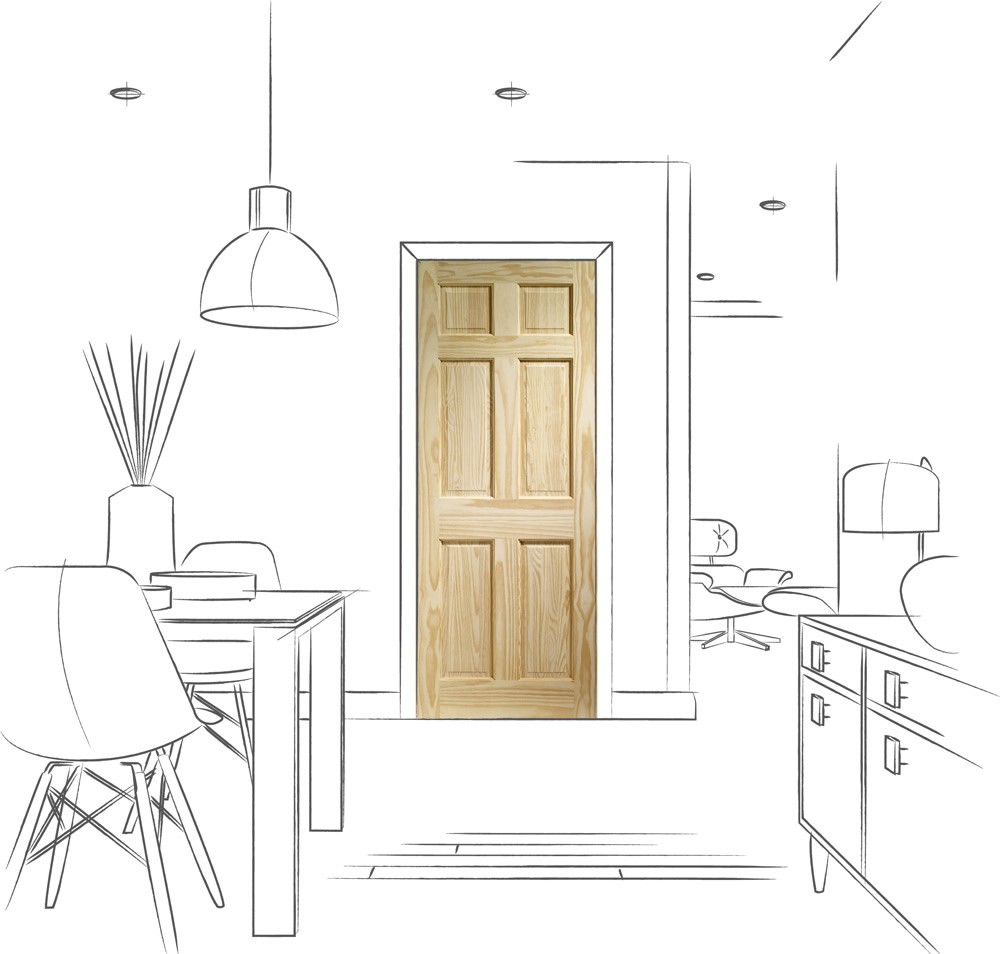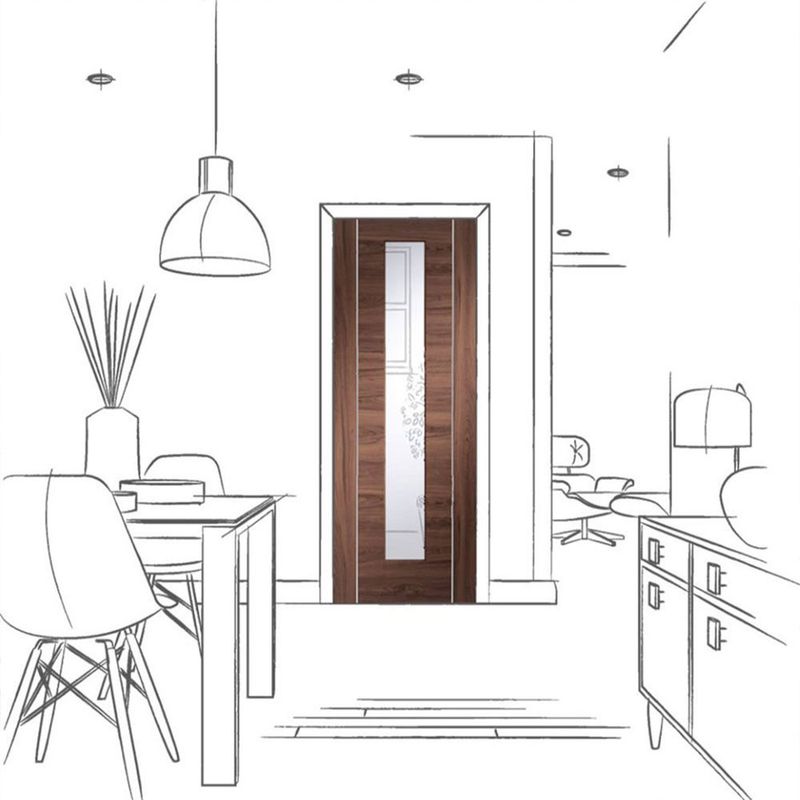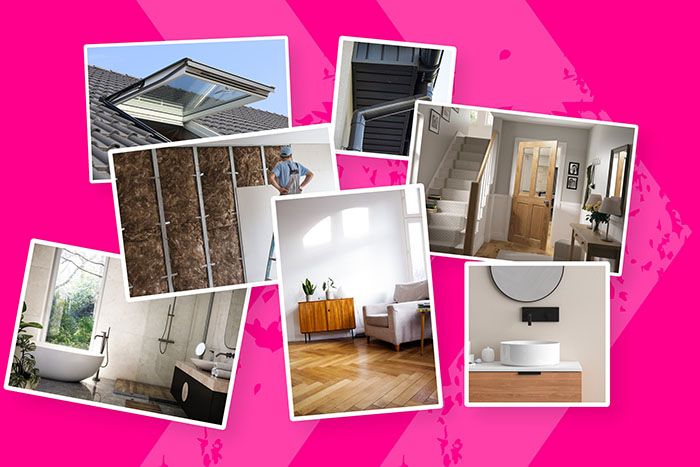To choose an internal door which is going to offer some soundproofing, it’s important to know what doors are made of and how they’re manufactured. Opting for a lightweight, thin and hollow door isn’t going to provide any soundproofing qualities compared to a thick, solid-core door. Most doors aren’t deliberately built to reduce noise but there are some choices you can make to get a door which reduces airborne noise by some amount.
Table of contents
- Hollow core doors
- Solid core doors
- How can I increase the soundproofing my door offers?
- Choosing the right soundproofing door
Hollow core doors
Hollow core doors are touted as an inexpensive yet still sturdy alternative to solid doors. They’re constructed from wood or engineered materials and the inside of the door is hollow, aside from usually a cellular pattern inside for additional strength.
Since these doors are hollow, they’re not very dense. As such, they’re not recommended for areas like livings rooms or bedrooms where some acoustic properties are needed.
Hollow core doors are recommended for utility doors, pantries and other light uses where a heavy and solid door isn’t required. This is a low-cost way to get new doors without shelling out!

Solid core doors
Solid core doors are the go-to door for fitting out a home. They’re weighty and you can feel the weight and the quality of these doors when you open and close them. Solid core doors possess a ‘middle ground’ of weight where they’re light enough to open easily for children but they’re heavy enough to show their high quality – and to provide levels of soundproofing.
Since solid core doors have a dense makeup, they can stop airborne noise from travelling through the surface into the next room. In theory, the more solid core doors you have, the more acoustically insulating these will be.
For example, if your home has a separate living room and kitchen which are connected by a hallway, installing solid core doors in both doorways and shutting them both provides double the amount of sound insulation than just one door.

How can I increase the soundproofing my door offers?
Without adding other products and elements to your door or doorway there’s only a certain level of noise insulation you’re able to achieve. Choosing acoustic door curtains and sound-absorbing paint can increase acoustic insulation for a more comfortable lifestyle.
Hang some acoustic door curtains
Soundproofing curtains, or acoustic curtains, can be installed across a closed door to provide extra sound insulation when it’s needed. A good example of their use would be when you’re watching an action film in one room whilst dad tries to relax in the kitchen. Close the solid core door of the living room and pull the curtain across for extra noise insulation.
These curtains don’t have to be pulled across all the time. Just when you want that extra bit of peace of quiet! They’re made from an even thicker material than blackout curtains too so they’re quite a good heat insulator.

Paint on a layer of sound-absorbing paint
Sound absorbing paint works by absorbing the sound into the surface so it’s unable to travel through the wall or door. How much sound is absorbed depends on how many layers of paint there are and the chosen paint. To prevent sound from escaping the room the paint must be used on the ‘loud’ room to soundproof the other areas of the home.
One downside of sound-absorbing paint is that to achieve complete sound absorption it needs to be used in combination with a heavier door and with other acoustic insulation. You also may need to paint on several layers. So be careful when choosing the size of your door as too many layers may mean it doesn’t fit into the frame properly.
And, don’t forget that we offer a range of acoustic wall panels too!
Choosing the right soundproofing door

Choosing the right soundproofing door involves several considerations.
First, assess the level of noise you aim to block and determine the ISO Sound Reduction Index (SRI) rating needed for the door to effectively attenuate sound.
Next, consider the door material; solid-core doors tend to offer better soundproofing than hollow-core ones. Look for doors with additional soundproofing features such as weatherstripping, acoustic seals and dense core materials like solid wood or composite.
Ensure proper installation to eliminate gaps that could compromise sound insulation.
Finally, balance cost with performance to find a door that meets your needs and budget while effectively reducing noise transmission.

Contact our dedicated customer service team for advice on how to achieve acoustic insulation for doors by calling 01752 422 501.













